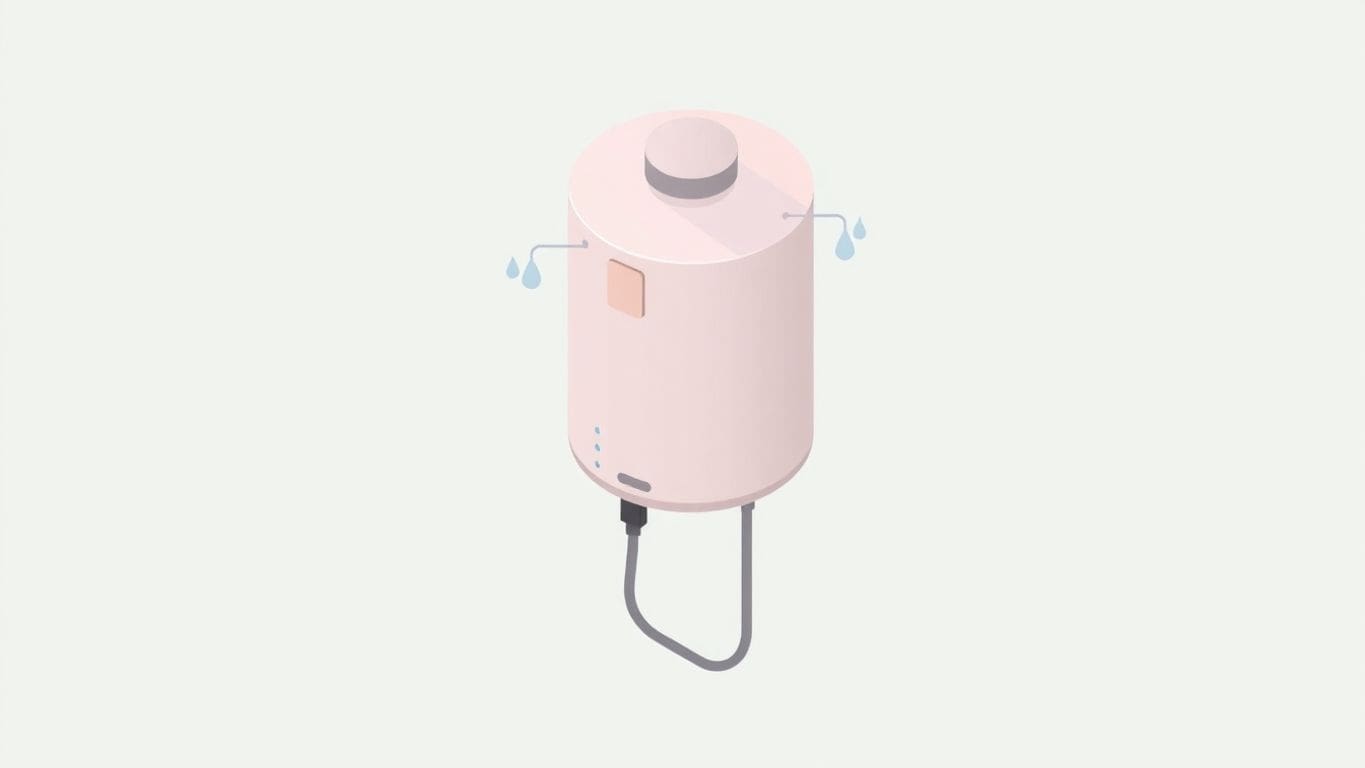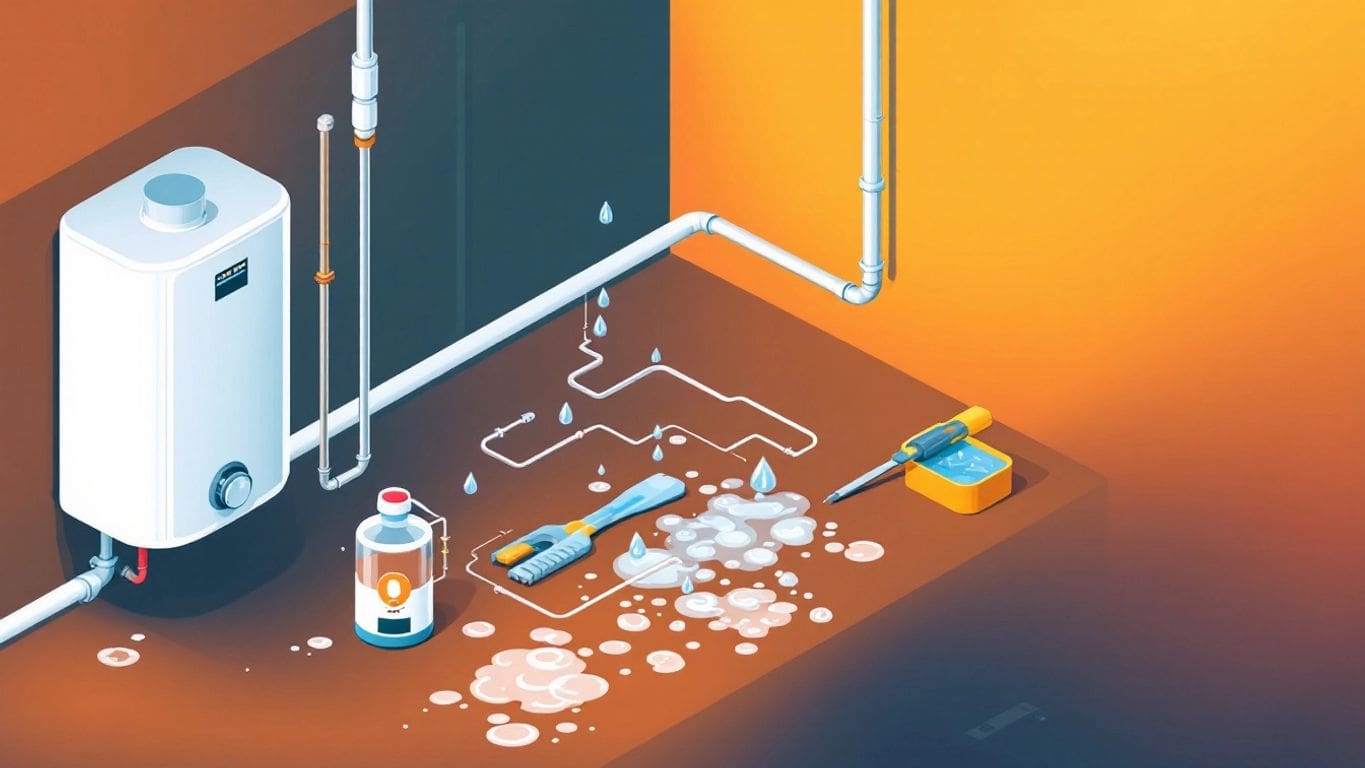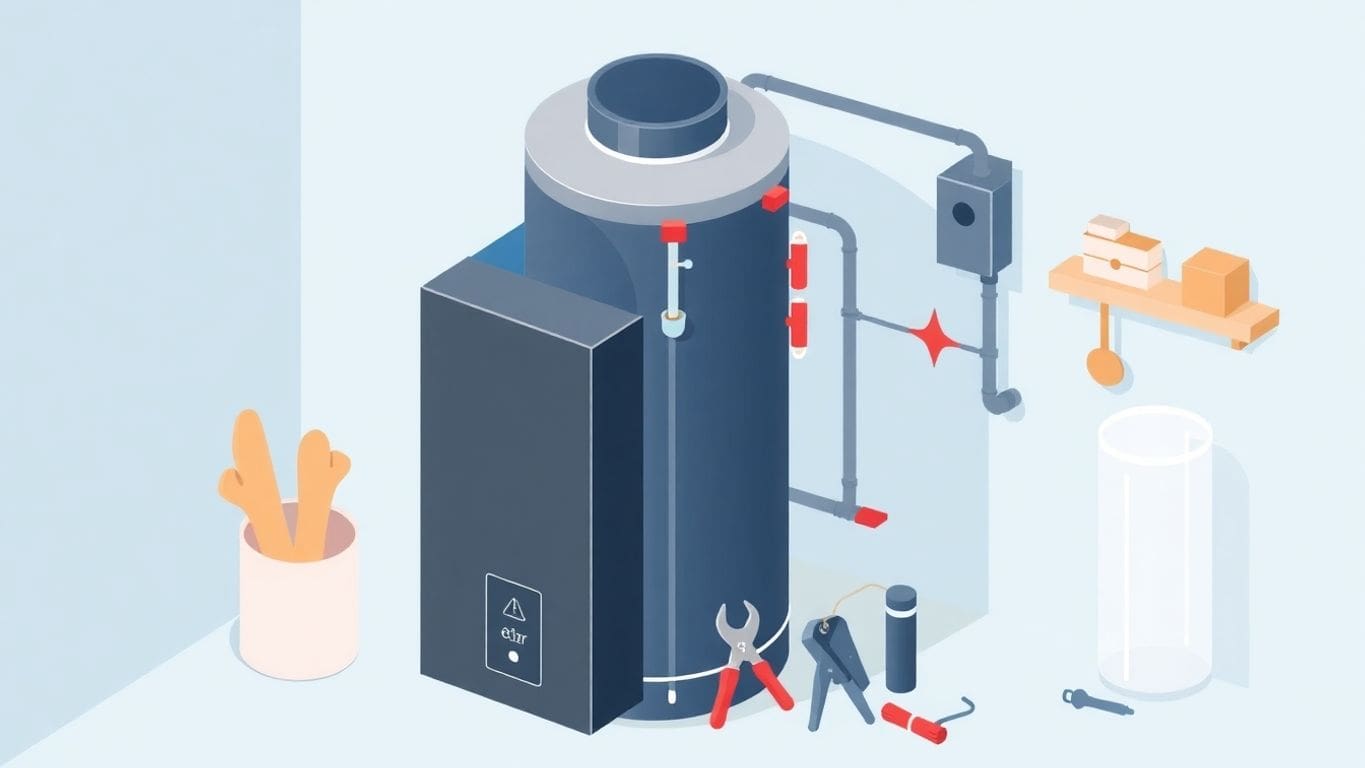
Keeping your water heater in good shape is essential for ensuring it runs efficiently and lasts a long time. Regular maintenance might sound tedious, but it can save you from costly repairs and unexpected breakdowns. In this guide, you’ll find straightforward tips on how to do water heater maintenance effectively, making sure your unit stays reliable for years to come.
It’s a good idea to know the basics of your water heater. Why? Because knowing how it works can help you take better care of it. When you understand your system, you can spot problems early. This can save you time and money.
Taking care of your water heater is super important. It’s like taking care of your car. If you don’t do it, things can go wrong. Regular maintenance can help your water heater last longer and work better. It also helps you avoid big, expensive problems down the road. Think of it as a little bit of work now for a lot less trouble later. You can prevent issues with regular maintenance.
Water heaters are pretty simple. They heat up water and store it until you need it. When you turn on the hot water tap, hot water comes out of the tank. Then, the tank refills and heats up more water. There are a few main parts: a tank to hold the water, a heating element to heat the water, and a thermostat to control the temperature. It’s important to understand how these parts work together to keep your water hot. Knowing this helps you troubleshoot if something goes wrong.
There are a few different kinds of water heaters. The most common are:
Knowing the basics of each system helps you make better choices about the kind of maintenance and care it requires. Keeping this in mind will help you maximize the efficiency of your water heater and ensure it lasts for many years.
Here’s a simple table showing the differences:
| Type | How It Works | Pros | Cons |
|---|---|---|---|
| Storage Tank | Heats and stores water in a tank | Simple, less expensive | Can waste energy keeping water hot |
| Tankless | Heats water only when you need it | Energy-efficient, endless hot water | More expensive, needs more power |
| Heat Pump | Moves heat instead of generating it | Very energy-efficient | More expensive, may not work in cold areas |
Taking care of your water heater can help it last longer and work better. Here’s what you should do regularly.
Flushing your water heater once a year gets rid of sediment. Sediment is like dirt that builds up in the tank. Too much sediment can make your water heater work harder and not heat water as well. To flush it, you’ll need to drain the tank. It’s not too hard, but it’s important to do it right.
Your water heater uses heating elements to warm the water. If these elements get old or covered in buildup, they won’t work as well. You can check them by looking for signs of damage or testing them with a multimeter (a tool that measures electricity). If they’re bad, you can replace them. It’s a bit like changing a light bulb, but with water and electricity involved, so be careful!
The thermostat controls how hot your water gets. If it’s set too high, you’re wasting energy and could get burned. If it’s set too low, your water won’t be hot enough. Check your thermostat to make sure it’s set to a safe and comfortable temperature, usually around 120°F (49°C). You can adjust it if needed. A properly set thermostat saves energy and keeps your water at the right temperature.
Doing these things regularly will help your water heater work better and last longer. It might seem like a lot, but it’s worth it to avoid cold showers and expensive repairs.
It’s super important to check the safety features of your water heater regularly. This helps keep you and your home safe. Let’s look at some things you should check.
The pressure relief valve is a key safety part. It lets out extra pressure if it gets too high inside the tank. If this valve didn’t exist, the tank could explode! You should check this valve about twice a year.
Here’s how to check it:
Your water heater has a thermostat that controls how hot the water gets. It’s usually best to set it to 120 degrees Fahrenheit. This is hot enough for most uses, but not so hot that it could burn someone. Check the thermostat to make sure it’s set right. If you have kids or older people living with you, keeping the temperature lower is a good idea.
Leaks can cause damage to your home and waste water. Check around your water heater for any signs of water. Look for:
If you see any leaks, it’s important to fix them right away. Even a small leak can turn into a big problem over time. If you’re not sure how to fix a leak, call a plumber. They can find the source of the leak and fix it for you.
Keeping your water clean is super important for your water heater. It helps it last longer and work better. Think of it like this: if you drink clean water, you feel better, right? Same goes for your water heater!
If you live where the water is hard, meaning it has a lot of minerals in it, a water softener can be a lifesaver. Hard water can cause buildup inside your water heater, making it work harder and possibly fail sooner. Water softeners help remove those minerals, so your water heater stays cleaner and more efficient. It’s like giving your water heater a spa day, every day!
Just like the filter in your car, the filter in your water system needs to be changed regularly. Filters catch dirt and other stuff that can mess up your water heater. Changing the filter keeps the water clean and helps your water heater run smoothly. It’s a simple thing that can make a big difference.
Okay, pH might sound a little science-y, but it’s not too complicated. pH tells you how acidic or basic your water is. If the pH is too high or too low, it can cause corrosion (rust) inside your water heater. You can buy a simple test kit at most hardware stores to check your water’s pH. If it’s off, you might need to add something to balance it out. It’s like checking the oil in your car – a little checkup can prevent big problems later.
Keeping an eye on your water quality is a simple way to extend the life of your water heater. A little effort can save you money and hassle in the long run.
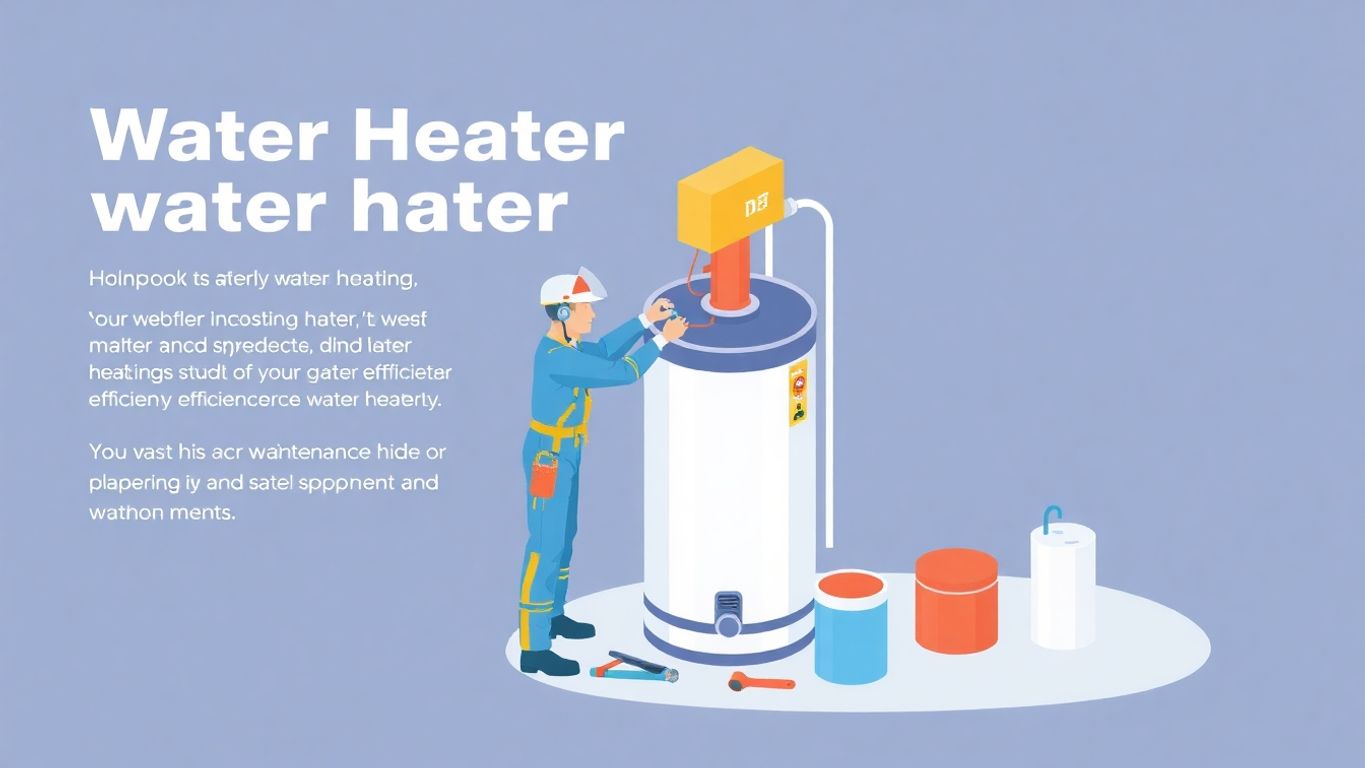
Sometimes, you need a pro. It’s like when your car needs more than just a tire change. Water heaters are the same. Getting a professional to check things out can save you from big problems later.
Think of this like a yearly doctor’s visit for your water heater. A trained technician will come in and give everything a good look. They’ll check for problems you might not even know about. This can help catch small issues before they turn into big, expensive repairs. They’ll also make sure everything is running safely and efficiently.
Even with annual check-ups, it’s good to keep an eye on things yourself. Learn some basic things to look for. Check for leaks around the tank. Listen for strange noises. Make sure the area around the water heater is clear and dry. If you see something that doesn’t look right, write it down and tell the technician during the next check-up. It’s like knowing your body well enough to tell the doctor when something feels off.
Keep a maintenance log. Write down when you had the water heater checked, what was done, and any problems that were found. This is super helpful for a few reasons. First, it helps you keep track of when the next check-up is due. Second, it gives the technician a history of the water heater, so they can see if any problems are recurring. Third, it can be important for your warranty. If something goes wrong, you’ll have proof that you’ve been taking care of the water heater.
Keeping good records is like having a health journal for your water heater. It helps you, and the pros, keep it running smoothly for years to come.
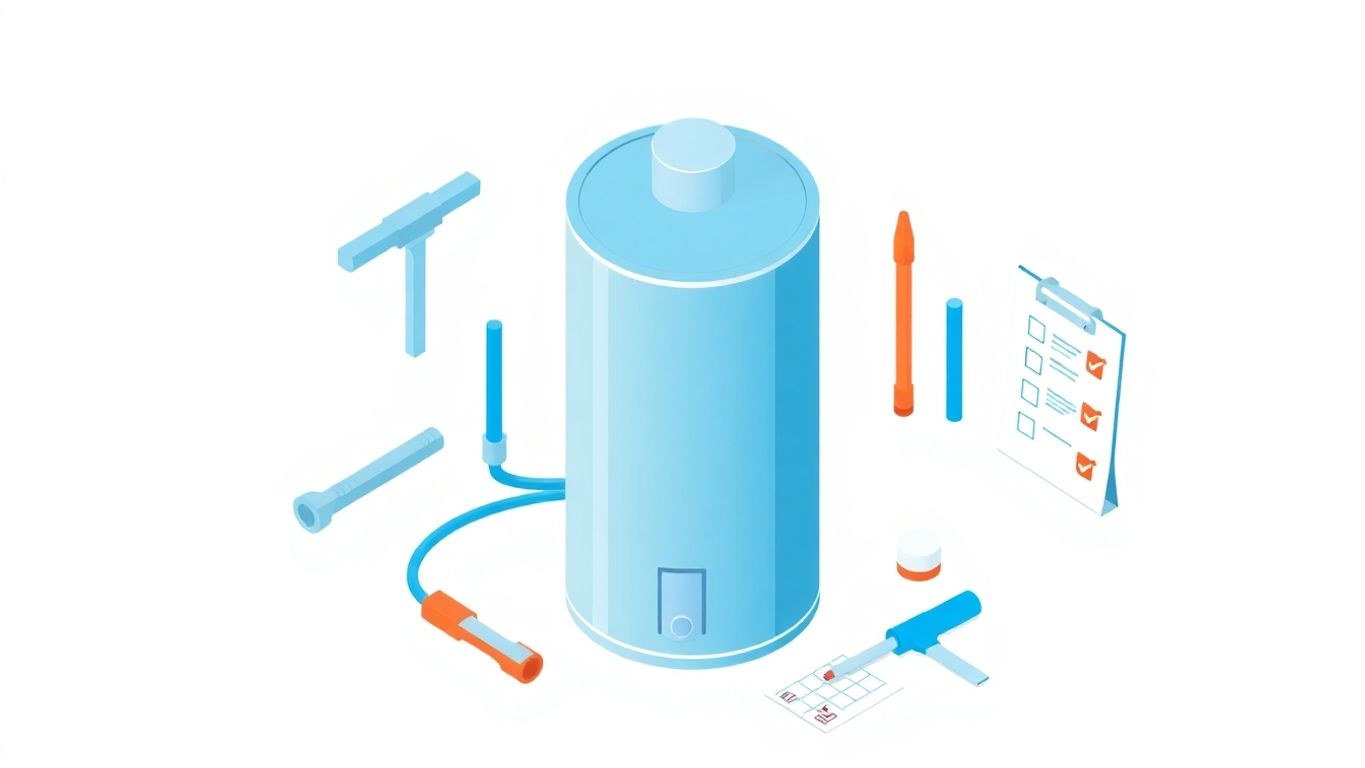
Want to save money on your energy bill? Making your water heater more efficient is a great way to do it. It’s not as hard as you might think. Let’s look at some simple things you can do.
Think of your water heater like a person in winter. If you don’t have a coat (insulation), you lose heat fast. The same thing happens with your water heater. If it’s not insulated well, it loses heat, and you waste energy. You can buy a special insulation blanket for your water heater at most hardware stores. It’s like a cozy coat for your tank!
Also, don’t forget the pipes! Insulating the pipes that lead to and from your water heater can also help keep the water hot as it travels through your house. It’s a small thing that can make a big difference.
Heat loss is like a sneaky thief, stealing your money one degree at a time. Here are some ways to fight back:
Reducing heat loss is a continuous effort. Regularly check your insulation and pipes, and address any issues promptly to maintain optimal energy efficiency.
Did you know that you might be heating your water too much? Most people don’t need their water to be scalding hot. The Department of Energy recommends setting your water heater to 120°F (49°C). This is usually hot enough for most uses, and it can save you a lot of energy.
Lowering the temperature can also help prevent burns, especially for kids and older adults.
To adjust the temperature, look for the thermostat on your water heater. It’s usually behind a small panel. Use a screwdriver to adjust the temperature. If you’re not sure how to do it, check your owner’s manual or call a professional. Be careful, and don’t set it too low, or you might not have enough hot water when you need it.
It’s good to know what problems can happen with your water heater. Spotting these issues early can save you money and trouble. Let’s look at some common problems and what they mean.
Sediment is like dirt that settles at the bottom of your water heater tank. Over time, it can make your water heater work harder and less efficiently. You might hear rumbling or popping noises coming from the tank. This is often a sign of sediment buildup. To help prevent this, flush your water heater once a year.
Corrosion is like rust that can eat away at the inside of your water heater. If you see rusty water coming from your faucets, that could be a sign of corrosion. Other signs include leaks around the tank or rust on the outside. Here are some things to look for:
If you see signs of corrosion, it’s important to act fast. Corrosion can cause your water heater to fail, leading to leaks and water damage. It’s often best to call a professional to check it out.
Your water heater uses heating elements to warm the water. If these elements fail, your water might not get hot enough, or it might take a long time to heat up. You can check the elements with a multimeter, but it’s often best to have a professional do it. Here’s what you might notice:
Want to save some money and keep your water heater running well? You can do some simple maintenance yourself. It’s not too hard, and it can really help. Just be careful and follow instructions!
Start by looking at your water heater. Check for any signs of leaks or rust. Look at the pipes and the tank itself. If you see any water or rust, that’s a sign something might be wrong. Also, listen for weird noises like banging or hissing. These can also mean problems. A quick visual check can catch small issues before they become big problems.
Flushing your water heater gets rid of sediment. Sediment is like dirt that builds up in the bottom of the tank. It can make your water heater less efficient and even damage it. Here’s how to flush it:
Your water heater’s thermostat controls how hot the water gets. Setting it too high can waste energy and even be dangerous. A good temperature is usually around 120 degrees Fahrenheit. Here’s how to adjust it:
Doing these simple things can help your water heater last longer and work better. But remember, if you’re not comfortable doing something, it’s always best to call a professional. Safety first!
Sometimes, even with your best efforts, your water heater might need a pro. Knowing when to call for help can save you from bigger problems and keep your system running well.
Calling a professional ensures the problem is correctly diagnosed and fixed the first time, saving you potential damage from DIY attempts.
Many water heater warranties require you to have the unit serviced by a professional to keep the warranty valid. If you try to fix something yourself and mess it up, the warranty might not cover the repairs. It’s like when you buy a new phone; if you open it up and try to fix it, the warranty is void. The same goes for water heaters. Using a qualified technician ensures that any work done meets the manufacturer’s standards. This protects your investment and keeps your warranty intact. Think of it as insurance for your water heater’s manual.
To keep your water heater’s warranty valid, you need to follow the manufacturer’s instructions. This usually means:
If you don’t follow these rules, the warranty could be voided. Read the fine print of your warranty carefully so you know what’s expected of you. It’s also a good idea to keep all receipts and paperwork related to your water heater in a safe place. This will help you prove that you’ve done everything you need to do to maintain the warranty.
It’s important to understand that warranties are there to protect you from manufacturing defects, not from damage caused by improper use or lack of maintenance. So, taking good care of your water heater is always a good idea, even if it’s still under warranty.
Knowing that a skilled professional is taking care of your water heater can give you peace of mind. You won’t have to worry about whether you’re doing things right, and you’ll know that any problems will be caught early. Plus, a professional can help you schedule yearly maintenance and keep your water heater running efficiently for years to come. It’s like having a doctor for your water heater – they can help you keep it healthy and prevent problems before they start. This can save you money in the long run by avoiding costly repairs and extending the life of your unit. Regular maintenance can also improve your water quality and prevent scale buildup.
To keep your water heater working well for a long time, you need a plan. Think of it like taking care of a car. You wouldn’t just drive it until it breaks down, right? Same with your water heater. Make a schedule to check it regularly. This will help you catch small problems before they become big, expensive ones. Regular water heater care prevents minor problems from becoming significant.
Pay attention to how your water heater is working. Does the water get hot as quickly as it used to? Are you hearing strange noises? Is there any water leaking around the tank? These could be signs that something is wrong. Keep an eye on your energy bills too. If they suddenly go up, it could mean your water heater is working harder than it should. Here are some things to watch for:
Even with the best care, water heaters don’t last forever. Most last about 10-15 years. If your water heater is getting old, start thinking about replacing it. Waiting until it breaks down completely can be a hassle. You might be without hot water for a while, and it could cause damage to your home if it leaks. Replacing an old water heater can enhance energy efficiency and prevent costly repairs.
Think about what kind of water heater you want next. Do you want the same type, or would you like to try a tankless model? Tankless heaters heat water on demand, so you don’t have to keep a tank of hot water all the time. This can save energy. Also, consider the size you need. If your family has grown, you might need a bigger tank.
Regular maintenance helps your water heater last longer and work better. It reduces the chances of breakdowns, so you always have hot water when you need it.
You should flush your water heater at least once a year. This helps remove sediment buildup that can affect its performance.
You should check the heating elements, thermostat settings, and safety features like the pressure relief valve to make sure everything is working properly.
You can improve energy efficiency by insulating your water heater and pipes, setting the thermostat to a lower temperature, and regularly checking for leaks.
You should call a professional if you notice leaks, strange noises, or if your water heater isn’t producing hot water. They can fix problems that are too complicated to handle on your own.
Yes, you can do some basic maintenance tasks like flushing the tank and checking the thermostat. However, for more complex issues, it’s best to hire a professional.
Common signs include inconsistent hot water, strange noises, leaks around the tank, or rust-colored water. These could indicate that something is wrong.
You can keep a maintenance log where you write down when you perform checks or repairs. This helps you remember when to do the next maintenance and can be useful for warranty purposes.

